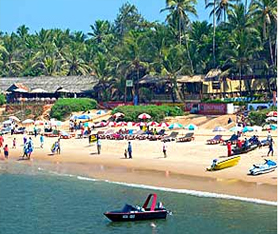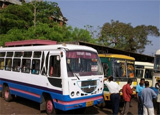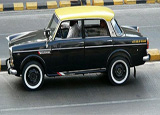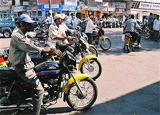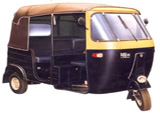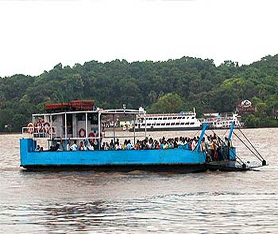| Goa is a tropical paradise that lies on the west coast of India bathed by the warm waters of the Arabian sea. | |||||||||||||||||||||||||||||||||||||||||||||||||||||||||||||||||||||||||||||||||||||||||||||||||||||||||||
|
|
|||||||||||||||||||||||||||||||||||||||||||||||||||||||||||||||||||||||||||||||||||||||||||||||||||||||||||
|
|||||||||||||||||||||||||||||||||||||||||||||||||||||||||||||||||||||||||||||||||||||||||||||||||||||||||||
| About Goa
Having been ruled by the colonial Portuguese for over 450yrs ( as compared to the rest of India that was ruled by the British for 250yrs) there is still visible a distinct Portuguese / European flavor that has permeated all aspects of Goa's life including its food, religion, language, festivals, dances and of course names. This becomes apparent as soon as you cross the border to Goa from India or elsewhere. This unique blend of Indian and Portuguese culture is to a large extent what makes Goa and the "Goan" unique. Also unique is the fact that it is one of the few colonies that India ( an ex- colony itself) liberated in 1961 and this set the stage for reclaiming history. Today at the dawn of the "age of Information Technology",
as Goa enters the new millennium, it has plenty
to write about in terms of achievements, some examples being-
the highest per capita income in India, the highest
per personal savings rate in India, the lowest infant mortality
rate in India, one of the highest literacy rate in India and one
of the highest standards of living as compared to the rest of
India. Beaches of Goa: To the average tourist interested in having a good time, " the beaches" is what Goa is all about. It has been widely publicized in the media, movies and adds to the mystique of Goa. This is not without reason because Goa possesses one of the finest stretches of sandy coastline in India . The tropical climate, the coconut trees, the white sand beaches all have been immortalized in many song and dance sequences of Indian movies and add to the romantic allure of Goa. It is now the No 1 tourist destination of Indians on the move especially the newly weds on their honeymoon and the upwardly mobile Indian gentry. The beaches have seen some significant commercialization , especially Calangute with hotels of every shape, size and class with shops and restaurants to cater to every taste. There are a few isolated beaches for those in search of peace and tranquility. In general, the beaches are clustered into two regions, north and south Goa coastlines with the capital Panaji and nearby Miramar beach, and Bambolim beach , in the middle. The first is the coastline that extends from Fort Aguada and Sinquerim beach areas and goes upwards along the coastline to Chapora beach and fort. The beaches along this stretch of coastline include the following in order Sinquerim, Candolim, Calangute, Baga, Anjuna, Vagator,
Chapora, Morjim, Arambol. Goa Local Transport: Since Goa is one of the most happening tourist destinations in India. To help tourists explore this place fully and in a considerable amount of time, Goa has all major modes of public transport. The local transportation in Goa suits every pocket and every taste. Right from air conditioned deluxe buses to the auto rickshaws, you can find the kind of public transport that you require according to your budget. There is absolutely no dearth of local transport in Goa and you can find autos and cabs round the clock. Bus: Taxi / Cab: Motorcycle Taxi: Auto Rickshaw:
Konkani is the mother-tongue of Goans - the people of Goa. It
is also the state's official language having been recognized as
so in 1976 and is also one of the languages recognized in the
constitution of India.
|
|||||||||||||||||||||||||||||||||||||||||||||||||||||||||||||||||||||||||||||||||||||||||||||||||||||||||||
|
|
|||||||||||||||||||||||||||||||||||||||||||||||||||||||||||||||||||||||||||||||||||||||||||||||||||||||||||
|
|||||||||||||||||||||||||||||||||||||||||||||||||||||||||||||||||||||||||||||||||||||||||||||||||||||||||||


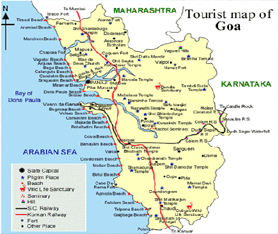 Goa
is a tropical paradise that lies on the west coast of India bathed
by the warm waters of the Arabian sea. It is unique in many ways
but mostly due to its history and geography that have left an
indelible mark on its people for generations.
Goa
is a tropical paradise that lies on the west coast of India bathed
by the warm waters of the Arabian sea. It is unique in many ways
but mostly due to its history and geography that have left an
indelible mark on its people for generations.